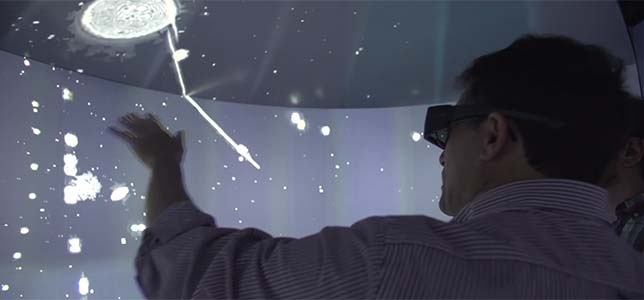Brown U Prof Helps Scientists Visualize Research with VR

A computer visualization expert at Brown University is helping scientists understand their fields in new ways with a range of technologies from virtual reality to 360-degree theaters.
Benjamin Knorlein is an application scientist in the university's Center for Computation and Visualization. Earlier this year, Knorlein was invited to join a team of scientists from across the United States on a research voyage across the Pacific Ocean. Along the way, he used 3D microscopy instruments aboard the ship to create "an immersive visualization in which scientists can not only see the plankton up close, but also move around among them to observe how they function within their environment," according to information released by Brown. Scientists were then able to view the project through VR headsets or Brown's YURT theater, which employs 69 HD projectors, 145 mirrors, 20 nodes of a high-performance-computing cluster and pixels so fine they can't be resolved by the human eye at normal viewing distances.
"Right now virtual reality has a great interest for society, but a lot of people don't really see the potential it can have for science," Knorlein said in a prepared statement. "If you think about it, computation nowadays is more or less in every field of science. A lot of the data people are looking at are also inherently three-dimensional."
About the Author
Joshua Bolkan is contributing editor for Campus Technology, THE Journal and STEAM Universe. He can be reached at [email protected].